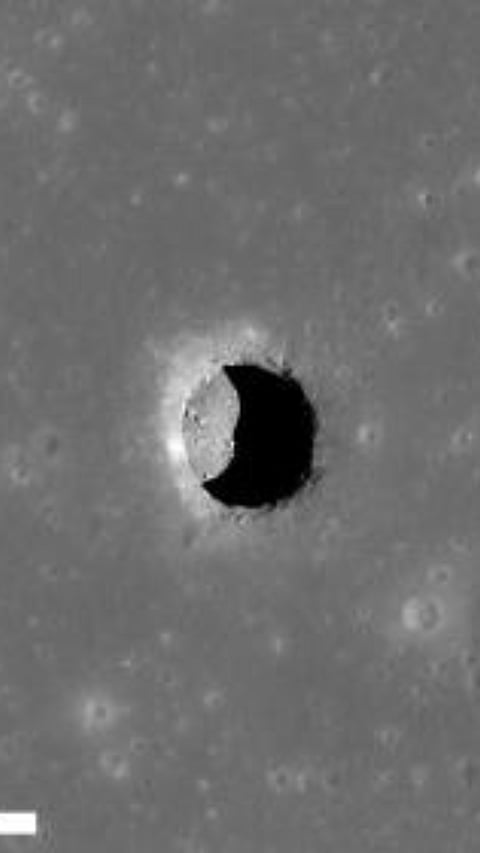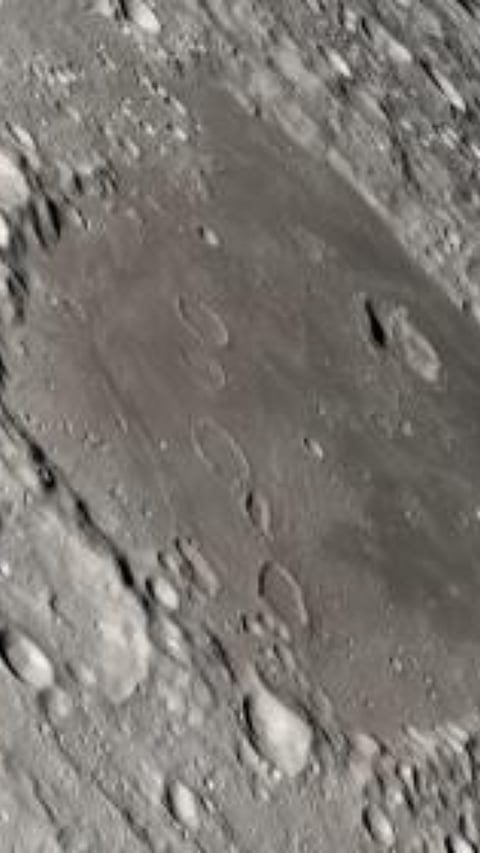Scientists Find Cave On The Moon
Scientists have discovered a lunar cave. The cave, which is at least 100m deep, is expected to be the ideal place for humans to build a permanent base on the moon.
Scientists have discovered a lunar cave. The cave, which is at least 100m deep, is expected to be the ideal place for humans to build a permanent base on the moon.

The proof of a lunar cave comes after over 50 years of mystery surrounding the topic. Speaking to AP, Leonardo Carrer and Lorenzo Bruzzone of the University of Trento said Lunar "it was exciting to be able to finally prove the existence."

The findings of the cave were first published in a journal in Nature Astronomy. Lorenzo Bruzzone and Leonardo Carrer from the University of Trento found the underground cave by using radar to penetrate the opening of a pit on the moon.

The cave was found on Mare Tranquillitatis, a rocky plain of the moon which is visible to the naked eye from Earth. This plain was also the site of the Apollo 11 landing in 1969.

With the discovery of the cave, scientists are hopeful for more lunar exploration missions for humans. The cave provides a perfect base for humans to set up projects that could last 20 to 30 years as they provide shelter from space weather.

The underground cave is expected to have been made millions or billions of years ago when lava flowed on the Moon. The lava flow created a tunnel through the rock and years later, formed a cave.

The discovery of the moon cave has created hope of more exploration on Mars - for human settlement or finding proof of life on the Red Planet.

The discovery of the cave also comes at a time when the human race is exploring the possibility of life on the moon. Amid the lunar race, agencies such as the International Lunar Lands Registry (ILLR) allows humans to buy a piece of the celestial body.

Over the years, several projects have been launched for lunar exploration. The most recent ones include India's Chandrayaan-3, Japan's Slim and China's Chang'e .
